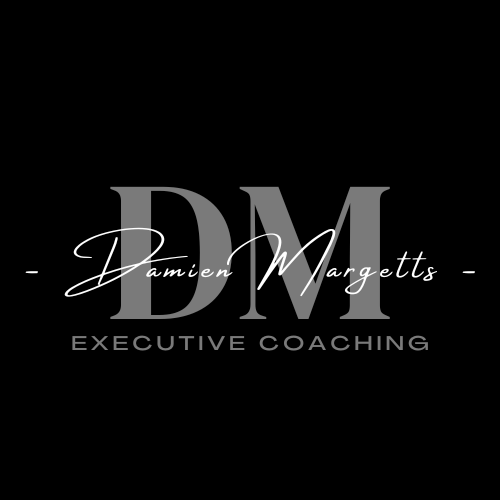The Benefits of Executive Coaching with Damien Margetts
Unlocking the true potential of your business requires effective leadership and strategic decision-making. But how can you enhance these skills and drive growth for your organisation? Enter executive coaching with Damien Margetts. In this article, we will take a closer look at the benefits of executive coaching and how it can boost your business performance.
With over a decade of experience working with top executives and business leaders, Damien Margetts is renowned for his ability to empower individuals to reach their full potential. By providing personalized guidance and support, Margetts helps executives develop essential skills such as communication, conflict resolution, and decision-making.
Executive coaching not only helps leaders navigate the challenges of their roles but also promotes personal growth and self-improvement. Through one-on-one sessions and targeted feedback, Margetts helps individuals identify their strengths and weaknesses, and leverage them to drive positive change within their organizations.
From enhancing leadership skills to fostering a culture of innovation, executive coaching with Damien Margetts can have a transformational impact on your business. Discover how this strategic investment can propel your organization to new heights of success.
Understanding the role of an executive coach
An executive coach is a professional who works closely with top executives and business leaders to help them reach their full potential. Damien Margetts, with over a decade of experience in this field, is renowned for his ability to empower individuals to excel in their roles. Through his personalized guidance and support, Margetts helps executives develop essential skills such as communication, conflict resolution, and decision-making.
Executive coaching is not about telling leaders what to do, but rather, it provides a safe and confidential space for them to explore their challenges and find solutions. Margetts acts as a sounding board, asking thought-provoking questions and offering unbiased perspectives. This process enables executives to gain clarity, make informed decisions, and drive positive change within their organizations.
Executive coaching is a collaborative partnership between the coach and the executive, with the goal of unlocking the executive’s full potential and maximizing their impact on the organization. By addressing both personal and professional development, executive coaching goes beyond traditional training programs and provides a holistic approach to leadership growth.
Benefits of executive coaching for business performance
The benefits of executive coaching extend far beyond the individual executive. When leaders receive personalized coaching, it has a ripple effect on the entire organization. Here are some key benefits of executive coaching for business performance:
1. Enhanced Leadership Skills: Executive coaching helps leaders develop and refine their leadership skills, enabling them to inspire and motivate their teams. By improving their communication and interpersonal skills, executives can foster a positive work culture, drive engagement, and increase productivity.
2. Improved Decision-Making: Through executive coaching, leaders gain valuable insights into their decision-making processes. They learn to analyze situations, weigh options, and make informed choices. This leads to better decision-making at all levels of the organization, ultimately driving business performance.
3. Increased Self-Awareness: Self-awareness is a key component of effective leadership. Executive coaching helps leaders understand their strengths, weaknesses, and blind spots. This self-awareness allows them to leverage their strengths and work on their weaknesses, resulting in improved performance and professional growth.
4. Conflict Resolution: Conflict is an inevitable part of any organization. Executive coaching equips leaders with the skills and techniques to manage conflicts constructively. By fostering healthy communication and facilitating effective conflict resolution, executive coaching creates a harmonious work environment, boosting overall business performance.
Case studies: Success stories of businesses that have benefited from executive coaching
To truly understand the impact of executive coaching on business performance, let’s take a look at some success stories of organizations that have experienced significant growth and transformation through coaching:
1. A technology startup, was struggling with low employee morale and high turnover. The CEO sought the help of an executive coach who worked closely with the leadership team to improve communication and team dynamics. Through coaching, the executives developed a clear vision and aligned their goals, resulting in improved employee engagement, increased productivity, and reduced turnover.
2. A well-established retail chain, was facing stiff competition and declining sales. The CEO enlisted the support of an executive coach to help the leadership team identify areas for improvement. Through coaching, the executives developed innovative strategies and implemented changes that revitalised the business. Within a year, the company experienced a significant increase in sales, market share, and customer satisfaction.
These case studies demonstrate the transformative power of executive coaching. By investing in coaching, organizations can overcome challenges, unlock their full potential, and achieve sustainable growth.
How to choose the right executive coach for your business
Choosing the right executive coach is crucial for maximizing the benefits of coaching. Here are some key factors to consider when selecting an executive coach for your business:
1. Experience and Expertise: Look for an executive coach with a proven track record of working with leaders in your industry. They should have a deep understanding of the challenges and dynamics specific to your business.
2. Compatibility and Chemistry: Executive coaching is a personal and confidential process. It is important to find a coach with whom you have a good rapport and feel comfortable sharing your challenges and goals.
3. Coaching Approach: Different coaches have different coaching styles and methodologies. Consider the approach that aligns with your leadership development needs and preferences.
4. References and Testimonials: Ask for references and testimonials from previous clients to gauge the coach’s effectiveness and impact on business performance.
By carefully selecting the right executive coach, you can ensure a successful coaching experience and maximize the benefits for both the individual executive and the organization as a whole.
The process of executive coaching and what to expect
Executive coaching typically involves a structured process that includes several stages. Here is a general outline of what to expect during executive coaching:
1. Initial Assessment: The coaching process begins with an initial assessment, where the coach and executive establish goals, identify challenges, and set expectations. This assessment provides a foundation for the coaching journey.
2. One-on-One Sessions: Executive coaching primarily involves one-on-one sessions between the coach and the executive. These sessions provide a safe and confidential space for the executive to explore their challenges, reflect on their experiences, and develop strategies for growth.
3. Targeted Feedback and Action Plans: Throughout the coaching process, the coach provides targeted feedback and helps the executive develop action plans to address specific areas for improvement. These action plans are designed to drive positive change and maximize business performance.
4. Accountability and Support: The coach acts as an accountability partner, holding the executive responsible for their commitments and progress. They provide ongoing support and guidance to ensure the executive stays on track and achieves their goals.
5. Evaluation and Review: At the end of the coaching engagement, the coach and executive evaluate the progress made and reflect on the impact of coaching on business performance. This evaluation helps measure the return on investment and identify areas for further development.
Key skills and techniques used in executive coaching
Executive coaching utilizes a range of skills and techniques to help leaders achieve their goals. Here are some key skills and techniques commonly employed by executive coaches:
1. Active Listening: Coaches listen attentively to what the executive is saying, both verbally and non-verbally. Active listening allows the coach to understand the executive’s challenges, perspectives, and motivations.
2. Powerful Questions: Coaches ask thought-provoking questions to stimulate reflection and encourage the executive to explore new possibilities. These questions help generate insights and facilitate growth.
3. Goal Setting: Coaches help executives set clear and actionable goals that align with their personal and professional aspirations. These goals serve as a roadmap for the coaching journey.
4. Feedback and Feedforward: Coaches provide constructive feedback and feedforward to help the executive identify areas for improvement and develop strategies to reach their full potential.
5. Visualization and Role-Play: Coaches use visualization techniques and role-play scenarios to help the executive practice new behaviors, build confidence, and enhance their leadership skills.
These skills and techniques, combined with the coach’s expertise and experience, create a powerful coaching experience that drives personal and professional growth.
Looking for our executive coaching services?
The role of self-reflection and personal development in executive coaching
Self-reflection and personal development are integral components of executive coaching. Through self-reflection, executives gain a deeper understanding of themselves, their values, and their leadership style. This self-awareness forms the foundation for personal development and growth.
Executive coaching encourages executives to regularly reflect on their actions, decisions, and interactions. By examining their successes and failures, executives can identify patterns, learn from their experiences, and make conscious changes to their behavior.
Personal development in executive coaching involves setting goals, creating action plans, and implementing strategies to enhance leadership skills. This may involve attending workshops, reading relevant literature, seeking feedback, and practicing new behaviors.
By investing in self-reflection and personal development, executives can continuously improve their leadership capabilities, drive positive change, and inspire their teams to perform at their best.
Measuring the impact of executive coaching on business performance
Measuring the impact of executive coaching on business performance is essential to evaluate the return on investment. Here are some key metrics and methods for measuring the effectiveness of executive coaching:
1. 360-Degree Feedback: 360-degree feedback involves gathering feedback from the executive’s superiors, peers, and subordinates. This feedback provides a comprehensive view of the executive’s performance and helps identify areas for improvement.
2. Performance Metrics: Business performance metrics, such as revenue growth, customer satisfaction, employee engagement, and productivity, can be used to measure the impact of executive coaching. By comparing pre-coaching and post-coaching data, organizations can assess the effectiveness of coaching interventions.
3. Qualitative Feedback: Gathering qualitative feedback from the executive, their team members, and other stakeholders can provide valuable insights into the impact of coaching on leadership behavior, team dynamics, and organizational culture.
4. Case Studies and Success Stories: Sharing case studies and success stories of executives who have experienced significant growth and development through coaching can serve as evidence of the impact of executive coaching on business performance.
By using a combination of these measurement methods, organizations can gain a comprehensive understanding of the impact of executive coaching and make informed decisions about future coaching interventions.
Conclusion: Unlocking your business’s full potential with executive coaching
Executive coaching with Damien Margetts offers a transformative opportunity to unlock your business’s full potential. By investing in coaching, leaders can enhance their skills, drive positive change, and maximize business performance.
Through personalized guidance and support, executive coaching enables leaders to develop essential skills such as communication, conflict resolution, and decision-making. The benefits of coaching extend beyond the individual executive, impacting the entire organization by fostering a culture of innovation, improving leadership effectiveness, and driving growth.
To maximize the benefits of executive coaching, it is crucial to choose the right coach, establish clear goals, and measure the impact of coaching interventions. By doing so, organizations can unleash the power of their leaders and propel their businesses to new heights of success.
So, are you ready to unlock your business’s full potential with executive coaching? Take the first step towards transformation today.



